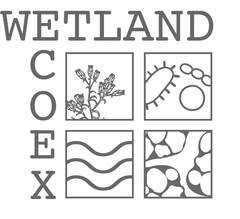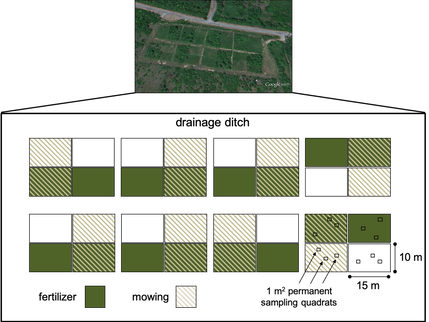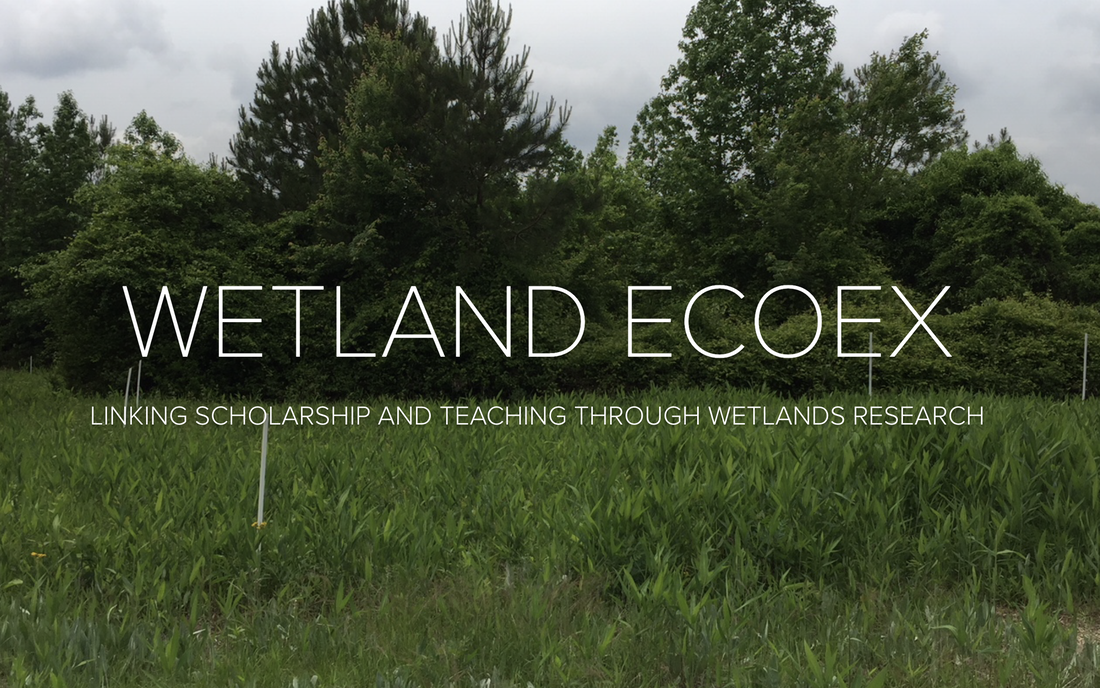|
BACKGROUND: A long-term ecological experiment provides a central theme to the biology curriculum at ECU and the foundation of multiple course-based undergraduate research experiences. Located in a wetland habitat at ECU’s West Research Campus (WRC), the experiment was originally designed to examine the effects of anthropogenic nutrient addition and disturbance on plant communities. Since 2004, Dr. Carol Goodwillie has mentored undergraduate students in conducting project design and data collection. Since 2014, the Peralta Lab has examined how nutrient enrichment influences plant-microbe relationships and microbial-climate change feedbacks on wetland carbon storage. In 2020, with support from ECU's Water Resources Center and collaborators in Geological Sciences and Engineering, we started monitoring soil moisture and groundwater levels to characterize hydrologic processes.
|
|
TIMELINE
2002: Project funded by NSF DUE Adaptation and Implementation grant 2003: Experimental site burned, bushhogged and disked, treatments initiated 2004: First plant data collected 2014: Peralta Lab begins soil microbial and chemical analyses 2019: Peralta awarded NSF CAREER - Microbial controls on wetland carbon stabilization and storage 2020: ECU team awarded NSF IUSE - Team Experiences and Mentoring Strategies for Undergraduate Research (PI Joi Walker) 2020: Water Resources Center, Geological Sciences, and Engineering begin monitoring hydrologic processes 2023: Fayetteville State University's Dr. Danielle Graham and Co-PI Peralta awarded NSF EiR - Excellence in Research: Evaluating Environmental Stressor Effects on Soil Bacterial Traits |
Publications
[*undergraduate co-author, §graduate student co-author]
PEER-REVIEWED
Koceja, M.E.*, R.B. Bledsoe§, C. Goodwillie, and A.L. Peralta (2021). Distinct microbial communities alter litter decomposition rates in a fertilized coastal plain wetland. Ecosphere. 12(6) e03619. PDF
Goodwillie, C., M.W. McCoy, and A.L. Peralta (2020) Long-term fertilization, mowing, and ditch drainage interact in the dynamics of a wetland plant community. Ecosphere. 11(10):e03252. 10.1002/ecs2.3252 PDF
Bledsoe, R.B.§ , C. Goodwillie, and A.L. Peralta (2020). Long-term nutrient enrichment of an oligotroph-dominated wetland increases bacterial diversity in bulk soils and plant rhizospheres. mSphere. 5(3). PDF
PRE-PRINT
Walker, A., D. Stephens, A. Garcia, A.L. Peralta (2022) Long-term fertilization modifies the composition of slow-growing oligotrophs more than fast-growing copiotrophs in a nutrient poor coastal plain wetland. bioRxiv. https://doi.org/10.1101/2022.11.28.518233
THESES & DISSERTATION
Stephens, Daniya. “Long-term fertilization and hydrology interact to influence wetland plant and bacterial communities in a low-nutrient wetland.” East Carolina University. MS Biology Thesis. December 2022. https://thescholarship.ecu.edu/handle/10342/12300
Garcia, Aied. “Examining chronic nutrient enrichment effects on wetland plant-microbe interactions using a trait-based approach.” East Carolina University. MS Biology Thesis. December 2022. https://thescholarship.ecu.edu/handle/10342/12312
Bledsoe, Regina B. "Manipulation of flooding and nutrients influences plant-microbe interactions and wetland function." East Carolina University. PhD dissertation. July 2020. https://thescholarship.ecu.edu/handle/10342/8566
PEER-REVIEWED
Koceja, M.E.*, R.B. Bledsoe§, C. Goodwillie, and A.L. Peralta (2021). Distinct microbial communities alter litter decomposition rates in a fertilized coastal plain wetland. Ecosphere. 12(6) e03619. PDF
Goodwillie, C., M.W. McCoy, and A.L. Peralta (2020) Long-term fertilization, mowing, and ditch drainage interact in the dynamics of a wetland plant community. Ecosphere. 11(10):e03252. 10.1002/ecs2.3252 PDF
Bledsoe, R.B.§ , C. Goodwillie, and A.L. Peralta (2020). Long-term nutrient enrichment of an oligotroph-dominated wetland increases bacterial diversity in bulk soils and plant rhizospheres. mSphere. 5(3). PDF
PRE-PRINT
Walker, A., D. Stephens, A. Garcia, A.L. Peralta (2022) Long-term fertilization modifies the composition of slow-growing oligotrophs more than fast-growing copiotrophs in a nutrient poor coastal plain wetland. bioRxiv. https://doi.org/10.1101/2022.11.28.518233
THESES & DISSERTATION
Stephens, Daniya. “Long-term fertilization and hydrology interact to influence wetland plant and bacterial communities in a low-nutrient wetland.” East Carolina University. MS Biology Thesis. December 2022. https://thescholarship.ecu.edu/handle/10342/12300
Garcia, Aied. “Examining chronic nutrient enrichment effects on wetland plant-microbe interactions using a trait-based approach.” East Carolina University. MS Biology Thesis. December 2022. https://thescholarship.ecu.edu/handle/10342/12312
Bledsoe, Regina B. "Manipulation of flooding and nutrients influences plant-microbe interactions and wetland function." East Carolina University. PhD dissertation. July 2020. https://thescholarship.ecu.edu/handle/10342/8566


